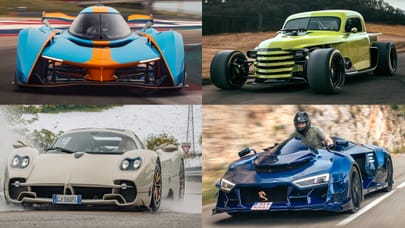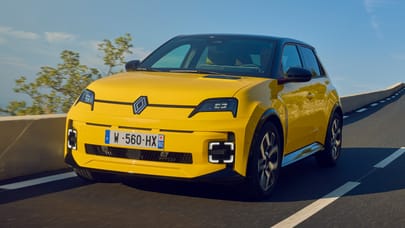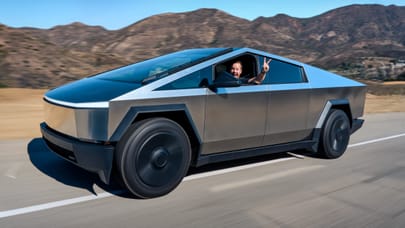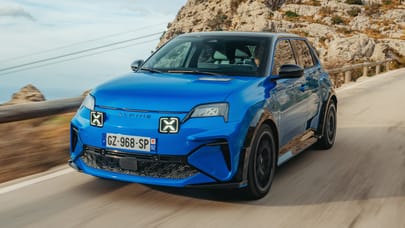
Top Gear's coolest racing cars: Bugatti Type 35
Now the Chiron is with us, Jason Barlow looks back at Bugatti's original speed machine
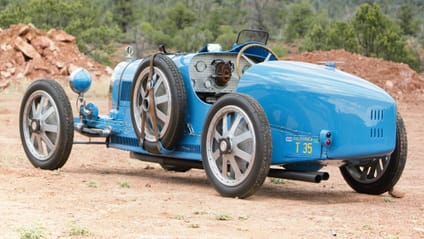

Now that the Chiron has finally broken cover – it seems like a good time to remember the car on which the Bugatti legend is built: the Type 35.
If the little T35 had never won a damn thing, it would still stand as one of the most effortlessly beautiful motor cars ever built, even if pre-War vintage cars aren’t generally your thing. But the fact is, it was almost comically successful in the Roaring Twenties, the decade in which Grand Prix racers really were heroes.
Ettore Bugatti was born in Milan in September 1881, and as a young man swiftly turned his natural talent to the fast evolving machine age, and its most thrilling manifestation: the racing car. By 1921, Bugatti had earned enough success with his Brescia competition model to establish the company as a full-blown constructor. The Type 35 duly arrived in 1924, lithe, purposeful and of course notable for its distinctive horseshoe arched radiator.
Picture credit: Bonhams
Advertisement - Page continues below
The T35 debuted in August 1924 at the Grand Prix de L’ACF in Lyon, initially using a 2.0-litre straight eight engine, with three valves per cylinder in a single overhead cam. The chassis was suspended on leaf springs at the front, with a live axle and quarter ecliptics at the rear. The car also featured a unique hollow axle, which the springs were passed through rather than simply bolted onto.
Despite running five cars, seventh was the best the T35 could manage first time out, an ill-starred start for a car that could later legitimately claim to be the most storied and successful racing car of all time. Indeed, before winning the Grand Prix World Championship in 1926 (the series had begun the previous year and been won by Alfa Romeo), the T35 racked up hundreds of race victories. Interestingly, Bugatti himself disliked forced induction (one wonders what he would have made of the Veyron and Chiron), but the addition of a Roots supercharger in 1925 only increased its competitiveness. Alongside its numerous GP wins, the T35 also dominated the Targa Florio, winning every year from 1925 through to 1929.
Picture credit: Bonhams

Louis Chiron was perhaps the best known of all T35 pilots, winning the 1928 Italian and Spanish Grands Prix in the more powerful Type 37A, and the 1929 Germans and Spanish GPs in the Type 35C. (He remains the oldest driver ever to have competed in a Formula One GP, finishing sixth driving a Lancia D50 in the 1955 Monaco GP – his home event – aged 55.)
The Type 35 is also remembered as the car in which Hellé Nice – known as the Bugatti Queen – competed squarely with some of the greatest drivers of all time. She became the third owner of chassis 4863, taking delivery in March 1930. In December that year, she drove the car on a record attempt at Montlhéry, and between 1931 and 1936, raced in most of the principal GPs; Nice was left in a coma following the tragic events of the 1936 Sao Paulo GP (her car clipped a soldier engaged in frantic crowd control, and then collided with a straw bale – three spectators were killed).
Picture credit: Bonhams
Advertisement - Page continues below
Her achievements and record are sullied by the fact that Louis Chiron himself accused her of being a Nazi collaborator during a party after the first post-WWII Monte Carlo rally (in 1949), a claim that is rebutted by various historians and writers. Whatever the truth, the Bugatti Type 35 is the car that united the talents of many in a crucially important formative period of motorsport history.
Picture credit: Bonhams
Bugatti Type 35

Year: 1927
Designed by: Ettore Bugatti
Drivers: Louis Chiron, William Grover-Williams, René Dreyfus
Engine: 2.3-litre V8, SOHC, 160bhp @ 4500rpm
Top speed: 130mph, 0-60mph 6.0 seconds
Weight: 762kg
Stand-out moment: five wins in the Targa Florio on the bounce equals five stand-out moments
Picture credit: Bonhams
Trending this week
- Electric
Top Gear's top 20 electric cars






